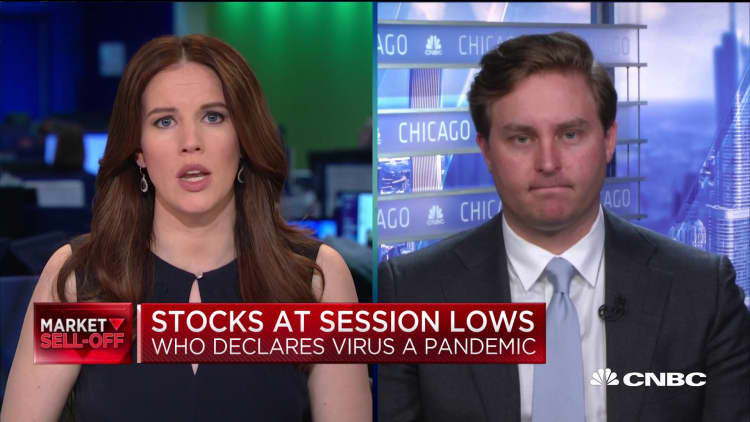Five things for your to-do list if you think your job is in danger
You may be wondering how secure your job is.
Don’t give into the negative feelings for too long, though.
“You have to stay ahead of the game,” said Claire Bissot, managing director of CBIZ Human Resources Services in Roanoke, Virginia. “Ditch your ‘woe is me’ mindset and declare, ‘I can survive anything.’ ”
1. Realize the connections. When the pandemic started, people might have thought they were shielded if they didn’t work in, say, retail. The fact is, your industry is likely tied to other industries, says Amanda Augustine, a certified professional resume writer and career coach at TopResume.
Hospitality, airlines, bars and restaurants, for example, are clearly vulnerable, but there are writers who cover those beats and public relations firms that service those clients.
“Everyone should be on high alert, regardless of profession,” Augustine said.

To figure out how your company is doing, try some sleuthing based on metrics, customers and site visits, if your company is transparent about numbers. See if it is advertising less or furloughing employees.
“How capable is your business at operating remotely?” Augustine said. “Hope for the best but prepare for the worst.”
2. Career change-up. Networking could lead to new goals.
Have some informal chats with people in a desired field and tell them you want the good, the bad and the ugly, Augustine says. If you want to pursue it, see how you can fill in any skill gaps.
“Everyone is looking for a human connection,” Augustine said. “Take this as an opportunity to reach out and connect, whether you’re exploring a different path or a different company.”
3. Seize the lesson

Continuing education can be expensive for many professional designations and fields, Bissot says.
Right now, many organizations are offering free training, which is especially welcome if you don’t have a salary.
If you don’t belong to a professional group, many other sites have no-cost webinars on subjects ranging from crisis communication to HR topics to cybersecurity to job-hunting and remote work.
3. Build your brand “If you’re looking to make a major change, re-evaluate your personal marketing materials,” Augustine said. That’s your LinkedIn profile, cover letter and resume: the many ways you advertise your skills and candidacy on paper, online and in person.
Weigh everything against the position you want, then highlight the skills and experience most valuable to prospective employers. Ruthlessly edit past jobs and expertise so you can tell the right career narrative, Augustine says. Since it’s often free, you may as well request a resume review from an online service.
Google your name to see what pops up about you to manage your online presence. In fact, Augustine says, set up a Google News Alert for your name to help keep an eye on your professional brand.
5. Think long-term. Now could be an ideal time to come up with a five- or 10-year plan.
“You need a new direction,” Bissot said. “Develop new goals and start researching the best way to take the MCAT or the LCAT, for example.”
Bissot recommends reading up on topics as if you’re back in college. “Nothing bad is going to come from getting new and creative ideas,” she said.
Once you’ve got a direction in mind, create weekly and monthly goals to help you stay on track. “If you st
